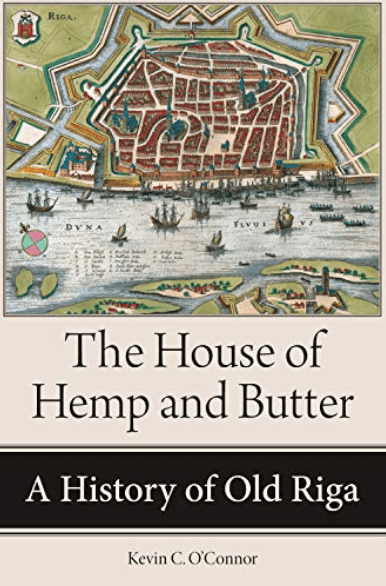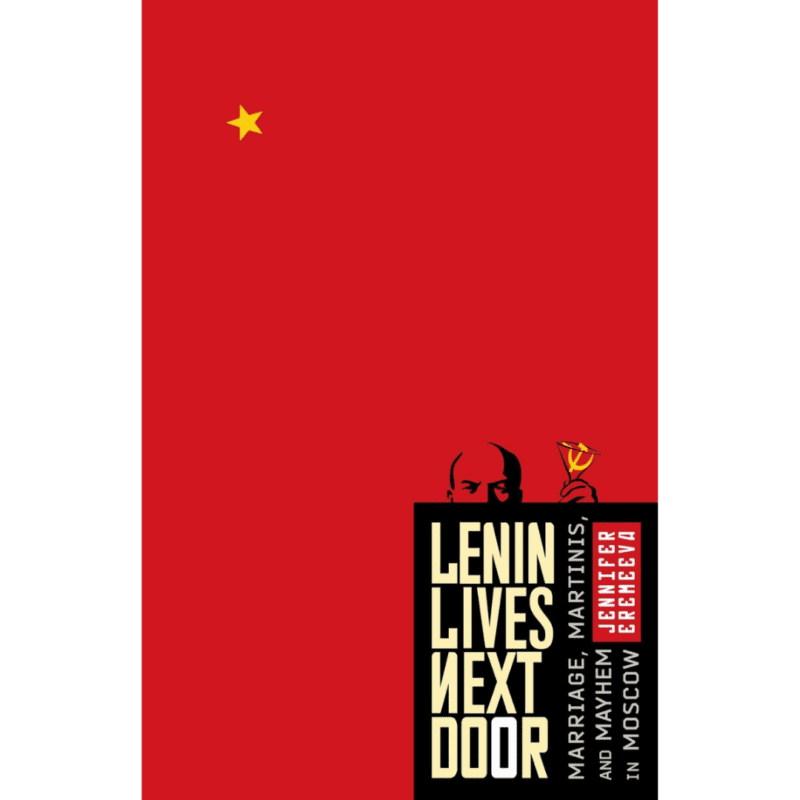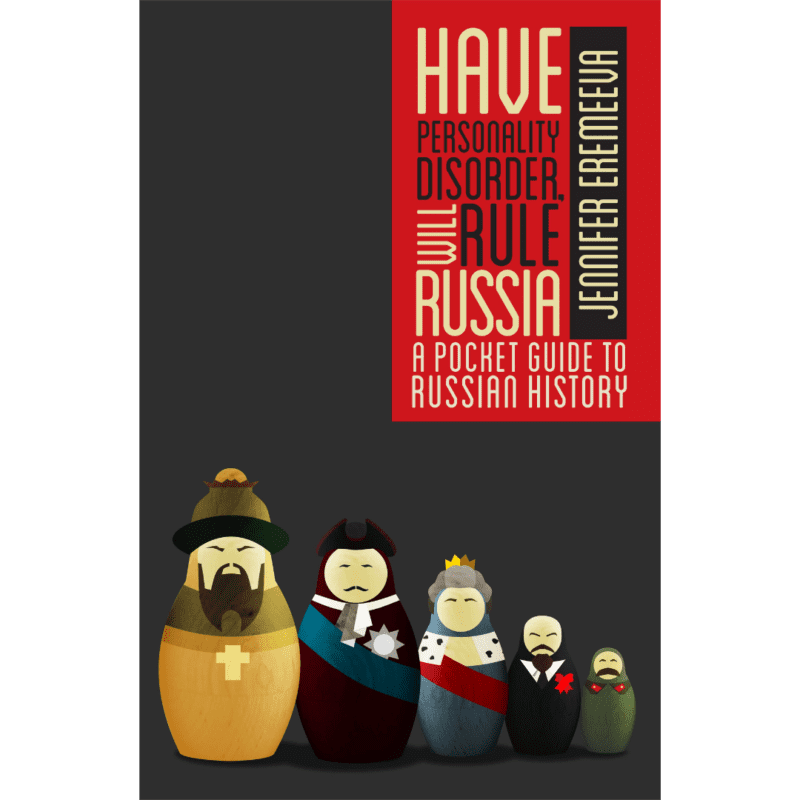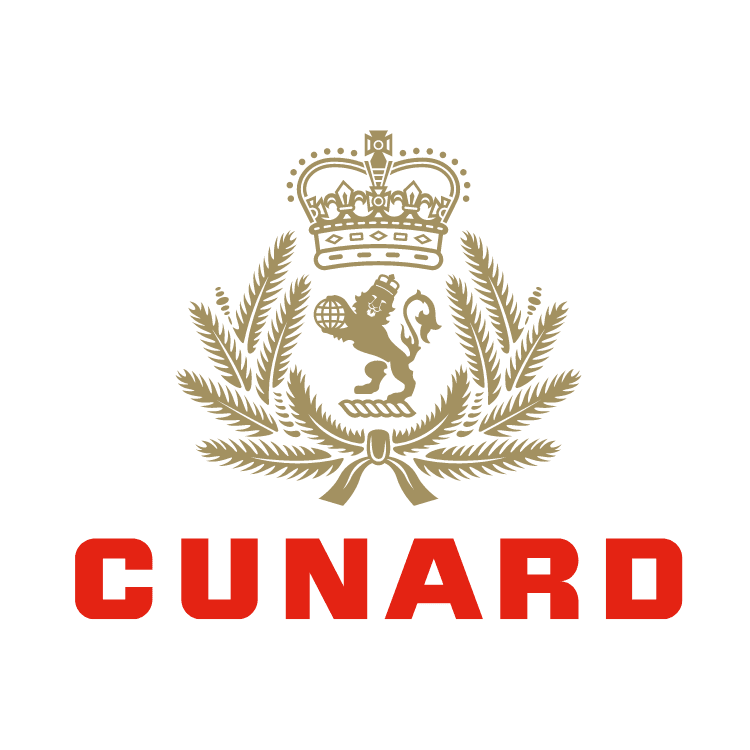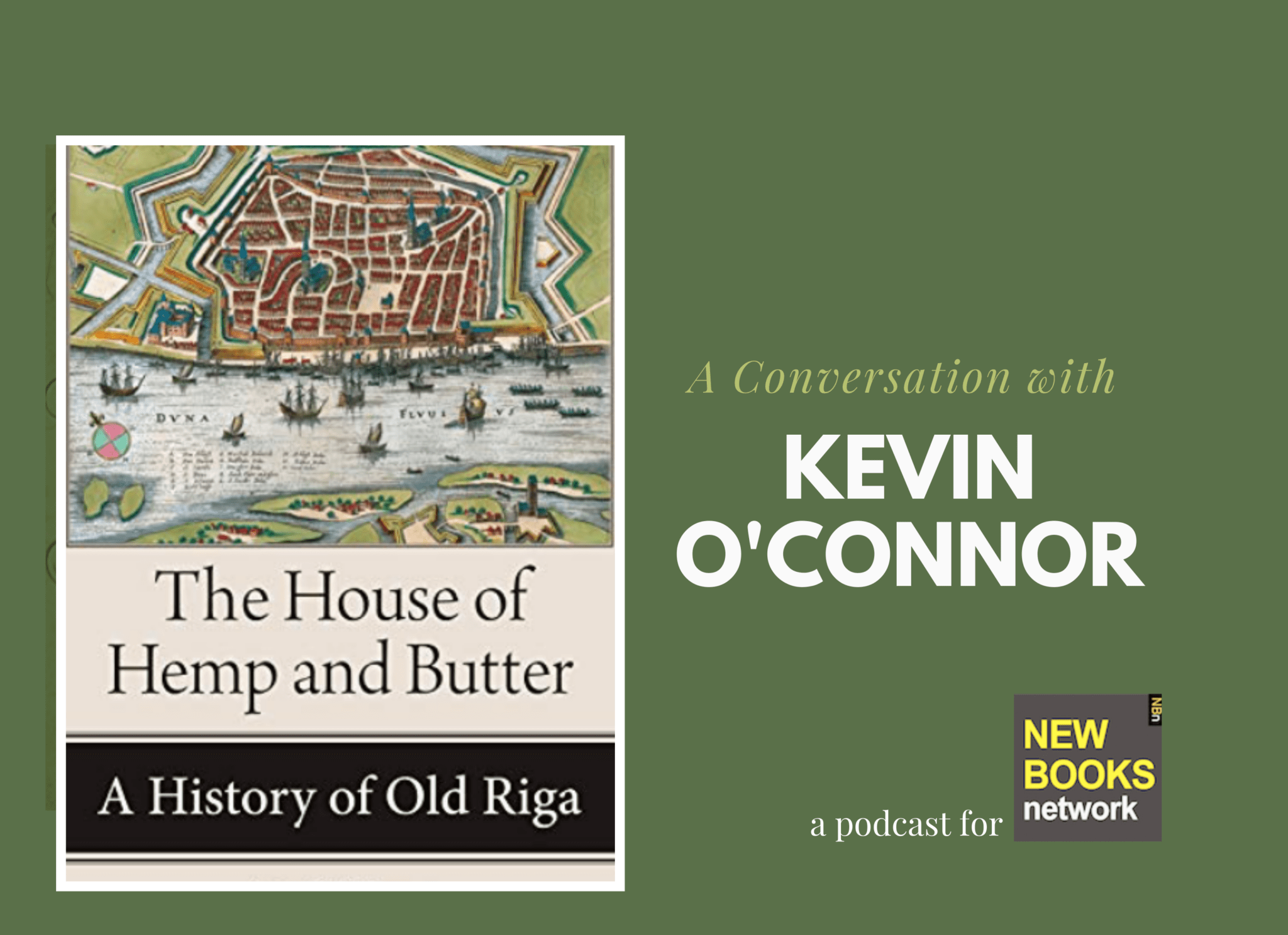
The House of Hemp and Butter: A History of Old Riga
by Kevin O’Connor
Cornell University Press
(2019)
A podcast for The New Books Network
Riga: The Pearl of the Baltic
Latvia’s elegant capital, Riga, is one of Europe’s best-kept secrets. Strategically located on the Eastern Baltic coast at the mouth of the River Daugava, Riga was founded in the early 13th century as a trading hub, a military outpost of the Holy Roman Empire, and a base for Roman Catholic prelates to convert both the pagan natives and the Orthodox Christians of Rus.
Kevin O’Connor’s new book, “The House of Hemp and Butter: A History of Old Russia,” charts the fascinating history of Riga from the earliest days to Peter the Great’s conquest of the much-coveted trading port in the early 18th century.
Riga’s Prelates, Knights, and Guilds
O’Connor’s book recounts in fascinating detail the personalities who shaped and dominated Riga’s political and economic history. For six centuries, Riga’s fortunes rose and fell in step with major political events of Europe, as the uneasy triumvirate of the church, military, and merchants balanced control and power over the city, ever hopeful to keep goods such as furs, timber, resin, and beeswax flowing from the vast Russian forest lands, through Riga and onto the rest of the known world. O’Connor introduces us to the infamous Livonian Brotherhood of the Sword — a military order of knights based in the city, canny and diplomatic prelates, and the notorious Brotherhood of the Blackfaces, one of the city’s professional associations.
Riga’s Multi-National, Polyglot Heritage
From the outset, Riga was a multi-national and polyglot city, much as it remains today. Her membership in the Hanseatic League — the European economic fraternity, which enjoyed a virtual monopoly on trade — greatly enhanced the city’s prestige and economic influence, as Germans, Poles, and other Hansa members established successful trading relationships with Riga’s guilds. Riga’s rapid adoption of Protestantism in the 16th century forged other strong links with her neighbors and separated her even further culturally from the growing might of Russia.
Though Rigans cherished their independence, the history of their city is one of almost constant occupation or rule of a foreign power, as the larger players in the Baltic constantly fought to gain the prize that was the city on the Daugava. O’Connor’s accounts of German, Polish, and later Swedish occupations help readers understand why the city developed in the way it did.
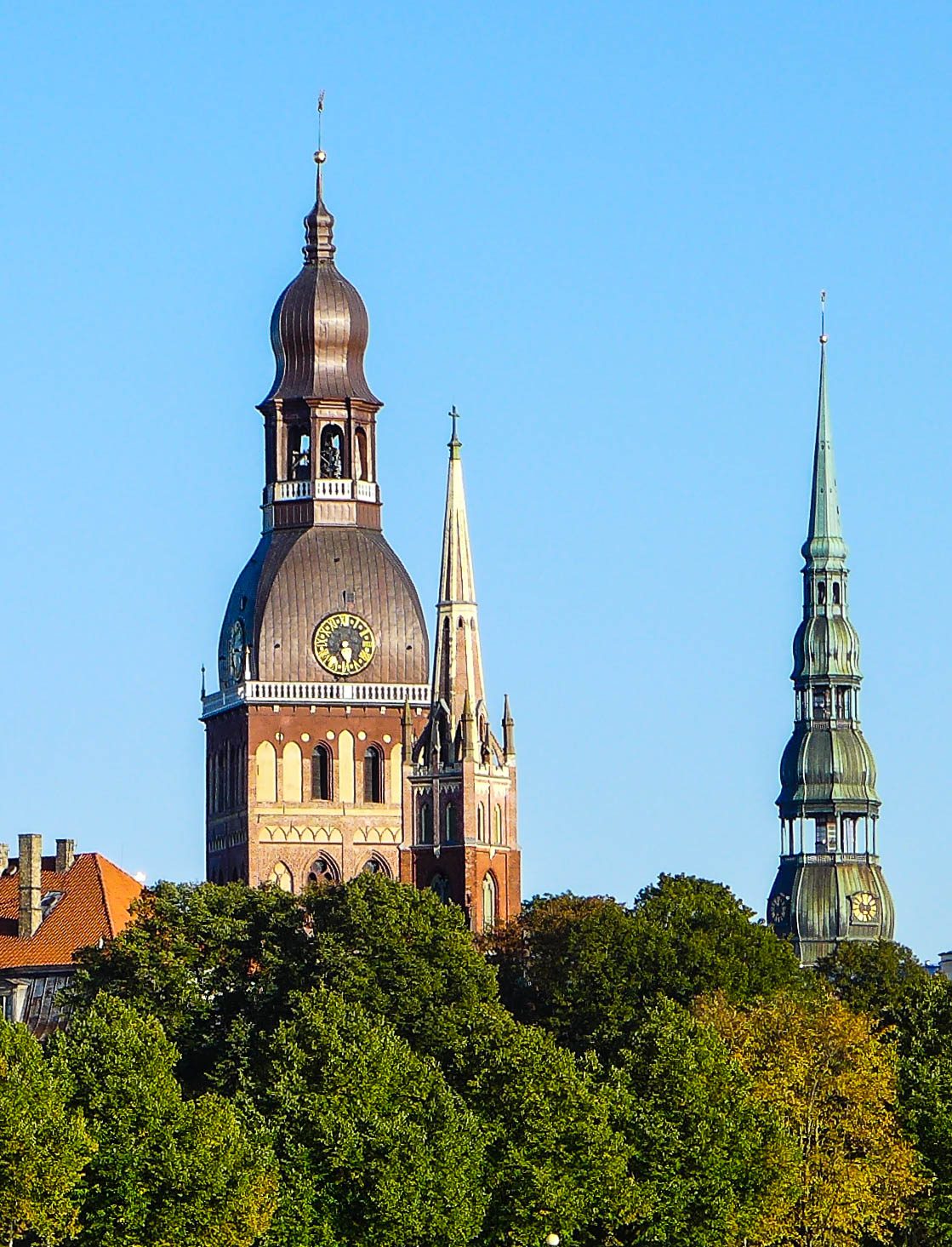
Riga’s Iconic Spires
Riga falls to Russia
O’Connor leaves us at Riga’s nadir. As plague ravishes the war-torn city, Tsar Peter the Great captures Riga as part of his conquest of the Eastern Baltic in the Great Northern War, which established the Russian Empire as the preeminent naval power in the Baltic Sea but relegates Riga to a second-tier trading hub. Moreover, O’Conner suggests, Russia’s conquest of the city forces Riga to adopt an “Eastern,” orientation which never sits comfortably with the centuries of Riga’s primarily “Western” culture and nature. We are left hoping that perhaps now, as Riga sloughs off the Soviet occupation, she will once more take her rightful place in the Baltic’s panoply of prosperous ports.
“The House of Hemp and Butter” is an impeccably researched and very engagingly written account of Riga’s fascinating social, economic, and political history.
Enjoy my conversation with Kevin O’Connor
Kevin C. O’Connor
Kevin O’Connor is the Chair of History at Gonzaga University. His previous publications include The History of the Baltic States (Greenwood Press, 2003), and Intellectuals and Apparatchiks: Conservative Nationalism, and the Gorbachev Revolution. (Lexington Books, 2006), and Culture and Customs of the Baltic States (Greenwood Press, 2006). He writes about his ongoing research at Rigahistory.com.
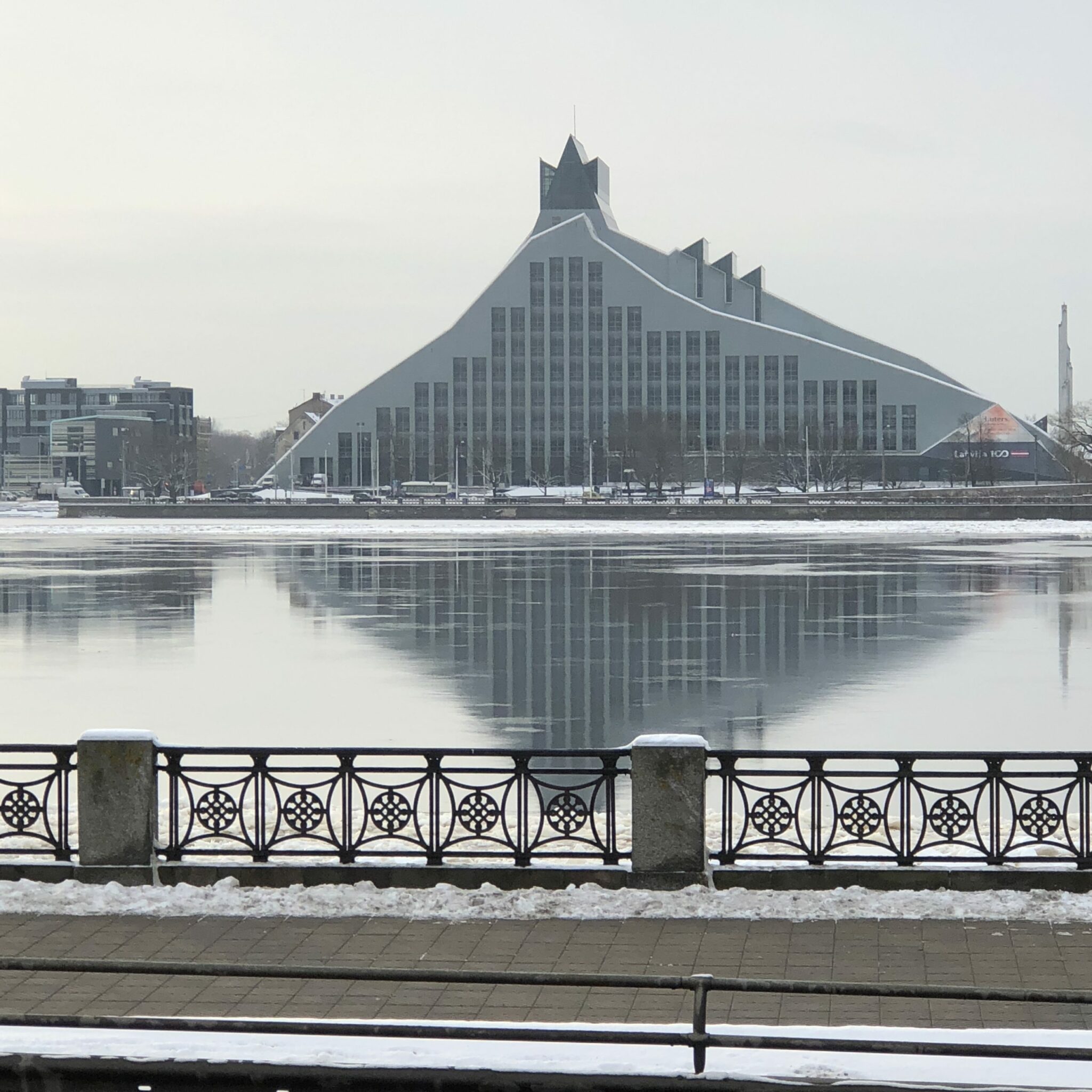
The National Library of Latvia
Recommended Related Reading
Some of the many books Gill mentioned in our discussion, which she found excellent source material for The Lost Daughter.
Caroline Boggis-Rolfe’s magisterial story of the Baltic Sea littoral. Enjoy my talk with Caroline about the book!
Thank you for stopping by!
Let’s stay connected!
Thank you for stopping by for this podcast! If you’d like to learn more about The New Books Network, visit their website and subscribe to any of the 87 channels, covering almost every academic discipline. I contribute to the Food, Russia & Eurasia Studies, European Studies, Eastern European Studies, and Historical Fiction channels.
Below, you’ll find more information on the kind of subjects I write about — it’s an eclectic list! I’ve also included links to previous posts about travel, cuisine, history, and lifestyle topics. I hope you’ll enjoy browsing around.
This post does contain affiliate links. Any purchases you choose to make via these links will net me a small commission from the retailer. I use these funds to support the maintenance and development of this website.
I hope you’ll consider staying connected with me by subscribing to receive regular updates or joining the conversation on Facebook, Twitter, Instagram, and Pinterest!
Food
Exploring food markets, developing recipes, and just eating was once my hobby, but now it is a full-time job. I write about food markets around the world, develop recipes, and study culinary history and emerging trends. I have a particular interest in Russian and Eastern European cuisine and culinary history.
Lifestyle
I believe that great books are part of a life well lived and this extends to audio entertainment. Under the Lifestyle umbrella, I review books, podcasts, and audiobooks, I discuss writing and reading and am constantly on the lookout for new ways to be productive and clear all manner of clutter from my life.

